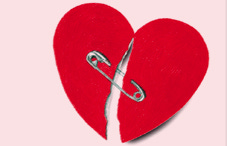Handling Micro-Rejections to Improve Your Relationships
Provoked is read in all 50 US states and 102 countries (the Sudanese are missing out). If you find this post valuable, please share it with someone and consider upgrading to a paid subscription.
Ever been trapped in a dinner date that turned into a one-sided monologue? And then they ask, "Am I talking too much?" Here's an opportunity to modify your relationship user manual for future interactions:
"I appreciate you checking in. Do I have permission to jump in when I feel like the conversation is a bit one-sided? When my bandwidth is too small?"
You can't lose. One of two outcomes arise:
They appreciate your proactive effort to continually enhance the relationship.
They react defensively, opening the door for a deeper, critical conversation about the functioning of the relationship. This could be a turning point for understanding each other better and improving the relationship.
There's plenty of advice out there - some worthy of a namaste, others deserving ridicule (for more on mental health charlatans - click here).
Here's a relationship suggestion that receives insufficient attention…Learn to manage mini, fleeting rejections
Imagine this: Your friend cancels plans at the last minute with a text. Here's your cue - "I always clear my day for spending time with you and was pumped about today...how can we prevent this next time?"
Or picture this: Your colleague dismantles your ideas during a meeting. Once over, you get to do a post-mortem with them - "How about we exchange feedback in private next time? That way, I can tweak my ideas based on your insights."
And it doesn't stop there...
Your sibling borrows your favorite book and returns it with a bent cover.
Your better half comes home from grocery shopping, and remembered everyone's list except yours.
Your little one decides to boycott the event you painstakingly planned and paid for.
Your partner views sex as a chore.
Your parent criticizes your outfit.
Your partner seems oblivious to your new haircut.
These so-called micro-rejections are endemic to relationships.
In work and relationships, we're bound to face a barrage of small rejections that can leave us with tiny or even colossal emotional bruises.
Past adversity influences how much pain we experience. So don’t judge yourself for the frequency, intensity, or longevity of your reactions.
Preparing for micro-rejection moments is essential. Your most powerful tools fall under the bin of clear, honest communication with others.
Do it in person.
Do it in private.
And remember, you are not haggling the price of a lawnmower.
You don’t gain points by wearing the mask of a stoic warrior.
You gain access to someone’s heart and mind by being present with whatever emotions arise.
For the full experience and to support my work, consider upgrading your subscription.
Provocations
We can turn these prickly moments into opportunities for open dialogue and mutual understanding. Every micro-rejection can be a stepping stone towards mental fortitude and stronger relationships.
1. Practice Assertive Communication: Clearly express your needs and feelings without attacking the other person (for more - click here. You can say, "I feel frustrated when you interrupt me because it makes me feel like my opinions aren't valued."
2. Cultivate Emotional Granularity: Recognize and name your emotions during conflicts (for a review with Dr. Lisa Feldman Barrett - click here). Acknowledge them by saying, "I'm feeling frustrated and disappointed because I think my point is not being heard. And I really worried about bringing this up because I don't want to harm what we have, which is a strong, deep connection."
3. Use Socratic Questioning: Challenge your own negative thoughts or assumptions by asking questions like, "What evidence do I have for this belief?" or "Could there be another way to view this situation?" Think of this as a very specific form of curiosity (for more science on this - click here).
4. Practice Detached Involvement: Learn to be present in an disagreement without being emotionally overwhelmed. You can choose when to engage, "I see that we're both upset, let's take a 5-minute break and come back to this."
5. Practice Negative Visualization: Expect that things might not go as planned. This prepares you for potential disappointments and makes you appreciate when things go well. Say, "Even if this strategy doesn't work, let's try another. This relationship is too valuable to stop for obstacles and setbacks."
6. Reframe Rejections: View rejections as a learning experience rather than a personal failure. Say, "This didn't work out, but it's an opportunity for me to understand what to do differently next time."
For More Relationship Communication Advice
Get the latest, best book on the topic, Supercommunicators: How to Unlock the Secret Language of Connection by
Subscribe to the Relational Riffs Substack by
Subscribe to the Practically Deliberate Substack by
Todd B. Kashdan is an author of several books including The Upside of Your Dark Side (Penguin) and The Art of Insubordination: How to Dissent and Defy Effectively (Avery/Penguin) and Professor of Psychology and Leader of The Well-Being Laboratory at George Mason University.
Read Past Issues Here Including:
The Troubling Trend of Self-Diagnosing Mental Health
A text from my child on Tuesday - "Dad, I think I have OCD." A conversation with my child on Thursday - "Dad, I might have depression." Before asking how they reached these conclusions, I generated a hypothesis - from listening to some untrained asshole trying to drive traffic to their TikTok, Instagram, or X accounts.



ha, thanks! Right, most discussions of rejection only focus on the target and not the interaction with the initiator. As if it doesn't take two to tango....unless it's the new world of polyamory.
What I really appreciate about these suggestions is how they reframe the experiences for both you and your conversation partner.
Too bad this guidance can’t go viral like some of the bad self-diagnosis stuff does.